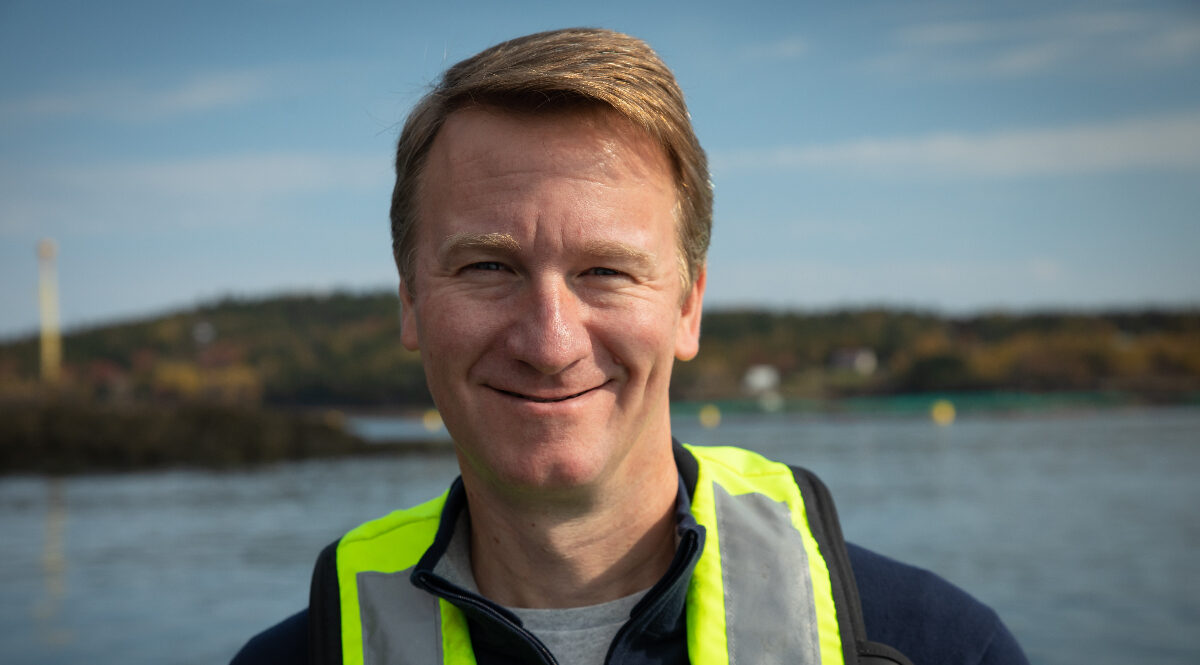Washington’s top court rejects claims by anti-fish farm activists
In a landmark 9-0 ruling, the Washington State Supreme Court has found the claims about disease and sea lice impacting wild stocks, that have been falsely and widely propagated by anti-fish farm activists in the Pacific Northwest, to be without merit.
Rejecting the dubious studies trotted out by the activists, including some originating from neighbouring British Columbia, the court upheld a permit granted to Cooke Aquaculture Pacific by the Washington Department of Fish and Wildlife (“WDFW”) for the farming of Pacific Steelhead trout.
The permit to Cooke, a Canadian seafood farmer was challenged by an eco-coalition opposed to fish farming, which had claimed that the ocean-based operations would cause significant adverse impacts on the environment and wild stocks.
“Transmission from farmed Atlantic salmon to wild salmonid populations presents a low risk and the transmission from farmed steelhead presents the same or even lower risk,” the court said.
In the case of disease outbreaks in net pens, the court said “there is limited evidence that these transmissions result in disease in the wild population.”
The court also completely dismissed concerns regarding sea lice, to support the continued scientific conclusion that the naturally occurring parasite in Puget Sound is not a concern, while noting that some of the allegations made by the eco-coalition are “unsupported in the record.”
“This State Supreme Court opinion lays to rest the array of disinformation about marine aquaculture being irresponsibly circulated by activist groups,” said Joel Richardson, Vice President of Public Relations for Cooke Aquaculture Pacific.
“The United Nations General Assembly has declared 2022 the International Year of Artisanal Fisheries and Aquaculture (IYAFA 2022) for a reason – because fish farming and other forms of aquaculture are the most environmentally sustainable forms of protein production and can help solve world hunger,” he said.
Cooke’s operation in Washington is a joint-venture with the Jamestown S’Klallam Tribe called Salish Fish. The company will rear native steelhead trout in Port Angeles on the Olympic Peninsula, where it is constructing a state-of-the-art aquatic farm.
“The Tribe has two interwoven goals in everything we do – to be stewards of the environment in protecting the unique ecosystems of our homelands and the Salish Sea and continue to gather our treaty resources to fund programs and services for our tribal citizens,” said W. Ron Allen, Tribal Chairman and CEO, Jamestown S’Klallam Tribe.
“Aquaculture allows us to utilize best practices in protecting the environment while continuing our traditional industries growing and gathering marine-based resources,” he said.
The Northwest Aquaculture Alliance (NWAA), which advocates for the sustainable production of aquatic foods in the Pacific region, described the unanimous opinion by the state’s highest court “a clear victory for science.”
NWAA President Jim Parsons, said the unanimous opinion should—and will—weigh in favour of other marine aquaculture producers facing similar unfounded attacks by special interest groups.
“As an industry, we are heartened to see a decision that essentially normalizes fish farming in Washington. It has taken many years and countless scientific reports to get to this place, and we are heartened as an industry that we can finally move forward with some of our Blue Economy initiatives,” he said.
The Washington court decision comes in the wake of plans to phase out salmon farms in BC’s Discovery Islands, despite nine-peer reviewed studies that showed the operations had virtually no impact on wild stocks migrating through the area.
The closure of salmon farms in the Discovery Islands, which had been operating for 35 years, will result in 1,498 people losing their jobs, mostly in the coastal communities of North Vancouver Island, an initial estimate by the industry shows.
The closures will also result in the loss of $379.7 million in economic output for the region, a labour income loss of $84.6 million and a tax hit for the region amounting to $21 million.
The fish farmers are now awaiting the ruling for a judicial review of the Discovery Islands’ decision, after a Federal court judge in a related- injunction application said “the only evidence before me is that today, salmon aquaculture in B.C. poses no more than a minimal risk to wild salmon.”
So far virtually all claims and the pseudo-science trotted out by the anti-fish farming lobby in BC, have been discredited, dismissed and corrected without the media fanfare that accompanied their original dire announcements.
Among the ‘studies’ that the Washington court rejected, include one by Gideon Mordecai, a viral ecologist at the University of British Columbia (UBC) and Alexandra Morton, BC’s loudest anti-salmon farming opponent, who claims to be an independent biologist.
The court agreed that the Mordecai study used by the activists “provide[d] no evidence for either pathogen amplification within farmed fish and disease transmission from farm fish to wild fish, or viral evolution (virulence or new species) associated with net-pen aquaculture.”
The Washington court in its unanimous opinion described Morton’s assertions about the benign piscine orthoreovirus, or PRV as not the “best available science”.
PRV has long been present in wild salmon in Pacific Northwest waters and all experimental exposures of the BC strain of PRV to Pacific and Atlantic salmon in BC have failed to induce disease or mortality, according to consensus by a broad range of fisheries scientists.
The Federal Court of Canada last year had also rejected Morton’s attempts, to influence its pending decision on the future of salmon farms in BC’s Discovery Islands.
In a scathing ruling, Judge Mandy Aylen said that “Morton’s proposed affidavit contains untested hearsay evidence, contains improper opinion evidence under the guise of being factual evidence.”
